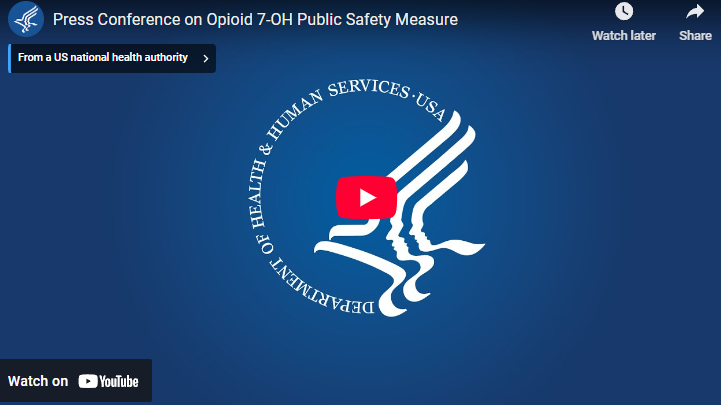
The Opioid Crisis Reassessed: Understanding 7-Hydroxy Mitragynine
Recently, key officials from health and government agencies convened a press conference to address the burgeoning crisis surrounding 7-Hydroxy Mitragynine (7-OH), a synthetic compound that has gained traction in convenience stores, vape shops, and online platforms. Despite being perceived by many as a permissible alternative to traditional opioids, experts have raised alarms over its dangerously addictive properties and the potential for causing overdoses.
In 'Press Conference on Opioid 7-OH Public Safety Measure', officials discuss the risks associated with 7-Hydroxy Mitragynine, prompting a deeper dive into its implications.
The Science of Addiction: Key Concerns
During the briefing, health officials including Deputy Secretary Jim O'Neal and Commissioner of Food and Drugs Dr. Marty McCary underscored the alarming potency of 7-OH, which is reported to be 13 times stronger than morphine. The absence of regulation in how these products are marketed and administered has created a hazardous situation for consumers, particularly young audiences whom the products are often targeted. The pressing need for swift action against this substance is essential to avert another public health calamity.
Personal Stories and Collective Experience
The conference featured impactful stories from individuals like Melody Wolf, a chronic pain patient who experienced a resurgence of normalcy through alternative botanical treatments, starkly contrasting with the high-stakes nature of 7-OH products. Her narrative reinforces the desperate need for public education and awareness around the true dangers of these substances, which are often misrepresented as safe options. Melody emphasized the critical difference between acceptable herbal compounds and suspicious synthetic alternatives.
Public Awareness: Taking Action on Addiction
As government officials gear up for a rigorous evaluation process regarding the scheduling of 7-OH as a controlled substance, it is evident that all stakeholders must collaborate to foster understanding and preventive measures around these products. The unfortunate reality is that many people are under the false impression that components sold in shops are inherently safe when they are not regulated.
The initiative to initiate dialogue and action is paramount. Families, educators, and communities must remain vigilant and educated about these substances to cultivate a healthier society. Both the Department of Health and Human Services and the Drug Enforcement Administration are committed to transparently addressing concerns related to 7-OH, emphasizing the importance of proactive measures in combating addiction before it escalates into another national crisis.
 Add Row
Add Row  Add
Add 




Write A Comment